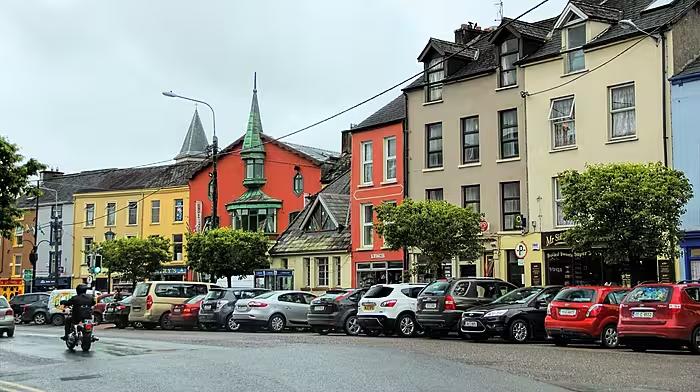Hoton the heels of the ‘Realising our Rural Potential: The Action Plan for Rural Ireland,’ which received a less-than-enthusiastic welcome, comes the launch of the public consultation process for the National Planning Framework, ‘Ireland 2040 – Our Plan,’ which will have even greater implications for rural areas.
HOT on the heels of the ‘Realising our Rural Potential: The Action Plan for Rural Ireland,’ which received a less-than-enthusiastic welcome, comes the launch of the public consultation process for the National Planning Framework, ‘Ireland 2040 – Our Plan,’ which will have even greater implications for rural areas. If trends keep going the way they have been in recent years, 75% of the country’s population could be clustered around Dublin by 2040, leaving the rest of the people well scattered across a vast rural hinterland and an inevitable further diminution of public services to rural areas.
Unless the new framework plan makes provision for more balanced regional development, the decline of rural Ireland will continue, as it has been for the past decade, which some newspaper reports appropriately described as ‘Dublin eating Ireland.’ Kerry TD Michael Healy Rae is calling for radical action, because he maintains that ‘this government, along with the last, are perfectly happy to sit back and watch rural Ireland die’ and further believes that ‘they see us living in rural areas as nothing only an inconvenience to them.’
While his passionately-held views will grate within government circles, they have to take on board his frustrations and ensure that the mistakes of the past are not repeated because it will only lead to further deterioration of services in rural Ireland. To the government’s credit, they are working towards drawing up a long-overdue plan for the next 20 years, because up to now most previous governments only ever worried about what they could get done within their maximum five-year term of office that would help get them re-elected.
The National Planning Framework that is due to be finalised before the end of this year will span the lifespan of at least five governments if it is followed through on fully. This will only happen if there is a broad consensus on its contents before it is finalised.
While circumstances may dictate some modifications during the plan’s lifetime, they must not be motivated by political expediency. The last effort at a long-term economic plan was the National Spatial Strategy, introduced by the Fianna Fáil-Progressive Democrats government in 2002, which attempted to be all things to all people, but ultimately fell by the wayside because the resources were never provided for the ‘gateways’ and ‘hubs’ it planned and, ironically, most of the towns it singled out for special development have fared worse since than other ones that were not included.
With most of the jobs created by foreign direct investment since this decade’s economic recovery started having been in and around Dublin – and Cork also to a lesser extent – the areas that have seen the biggest growth over the last number of years have been the towns within commuting distance of these cities, clogging up the roads leading into them with commuters, elongating their working day and leaving them little time to get involved in the communities where they live.
At the launch of the consultation period for ‘Ireland 2040 – Our Plan,’ Minister for Housing, Planning, Community and Local Government Simon Coveney stated that every county in the country deserved the same consideration by government and admitted that three-quarters of the houses needed will be built on commuter belts, unless something is done. People in rural Ireland would like to believe that the Minister is serious about spreading the economic opportunities throughout the whole country.
According to him, there are five key areas to be addressed as we look towards 2040. The first will be a national population increase of around one million people; by then more than 20 percent of the population will be over 65; there will be an additional half a million people at work and that many homes needed closer to where people are working, with attendant services and amenities to be provided also, and, finally, there’s the rebuilding of community and commercial life in cities and towns and what the Minister described as ‘protecting the many qualities of rural communities.’
The people of rural Ireland and their public representatives need to make their voices heard loud and clear about what they want from the new National Planning Framework before it is finalised, especially as Taoiseach Enda Kenny opened the door, stating at the launch of the consultation process that, if governments do not listen to people, strange things can happen – obviously referencing the Brexit result in the UK and Donald Trump’s election as President of the USA.
Is it too much to hope that the penny has finally dropped in this regard with our politicians? Time will tell.







